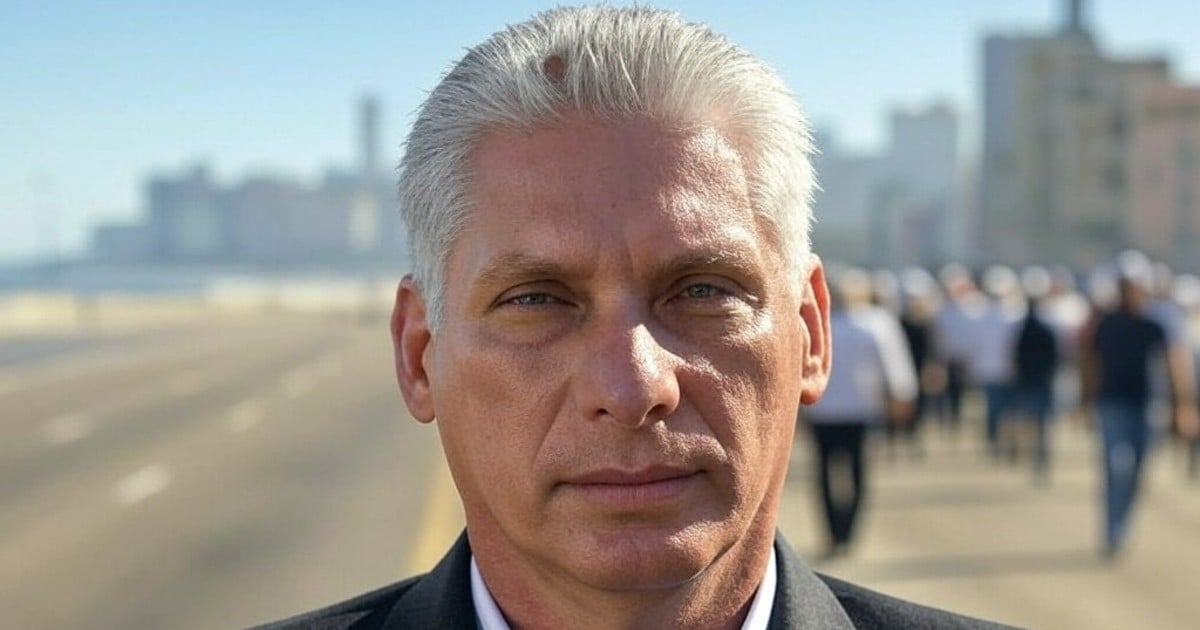Reflecting on my childhood, the May Day parades and the marches of the "Pueblo Combatiente" were unavoidable spectacles in my neighborhood. Living near the Plaza de la Revolución meant that from the early hours of the morning, the streets were inundated with buses. Thousands of these vehicles ferried workers and farmers from across the province to ensure a daunting crowd. It was a surreal sight: for one day, the streets were besieged by a sea of parked buses, making it impossible to leave home. Over time, we learned to avoid it. The night before, we would move the car to a parking lot on Calzada del Cerro, and while the crowd chanted slogans in the Plaza, we would escape to Santa María.
Fortunately, the days of massive marches orchestrated by Fidel Castro are behind us. Díaz-Canel lacks the mobilization power that Castro had, and the people are no longer interested in such rhetoric. This is why Miguel Díaz-Canel's announcement of a "Marcha del Pueblo Combatiente" on December 20 comes off as nothing more than a childish tantrum.
As the nation struggles with extended blackouts and an unprecedented fuel crisis, the government chooses to squander the country's limited resources on an utterly unnecessary display. What is the true cost of such a march? How much fuel is consumed to move 100 demonstrators? What about 1,000 or 10,000? Surely, Díaz-Canel does not intend to settle for a meager turnout.
Unjustified Resource Allocation
Each bus allocated for this march translates to hours of blackout for a neighborhood or town. Wouldn't it be more prudent to use the diesel for power generators to mitigate blackouts? Additionally, consider the expenses for drivers, security teams, police forces, and cleanup crews.
The propaganda machine also demands funding: banners, flags, t-shirts, snacks for participants, and media coverage for this so-called "historic event." Meanwhile, hospitals are left without power, and home refrigerators fail to preserve food. How can this decision be justified? It is selfish, capricious, and cynical.
A Misguided Priority
December 20 is a workday. Isn't it more vital for citizens to work, produce, and add value to a crumbling nation? Instead of fostering economic growth, the government opts to halt it. Meanwhile, the leaders will remain in their air-conditioned homes, watching the parade on television.
There is nothing worse than witnessing a government bleed the people's resources dry to satisfy its political vanity. Cubans need food, electricity, and transportation, not banners, slogans, and photos for the National Television News.
December 20 will serve as yet another reminder of the complete disconnection between leadership and the people. Another parade, another march, without a single real solution in sight.
When the power goes out on December 20, remember that the direct culprit is Díaz-Canel and his "Pueblo Combatiente" march.
Understanding the Impact of Political Decisions in Cuba
What is the significance of the "Marcha del Pueblo Combatiente"?
The "Marcha del Pueblo Combatiente" is a government-organized event intended to showcase support for the ruling party. However, it is criticized for wasting valuable resources during a time of crisis in Cuba.
How does the march affect the current fuel crisis in Cuba?
The march diverts diesel that could be used to power generators and reduce blackouts, exacerbating the ongoing fuel crisis and affecting essential services like hospitals and food storage.
